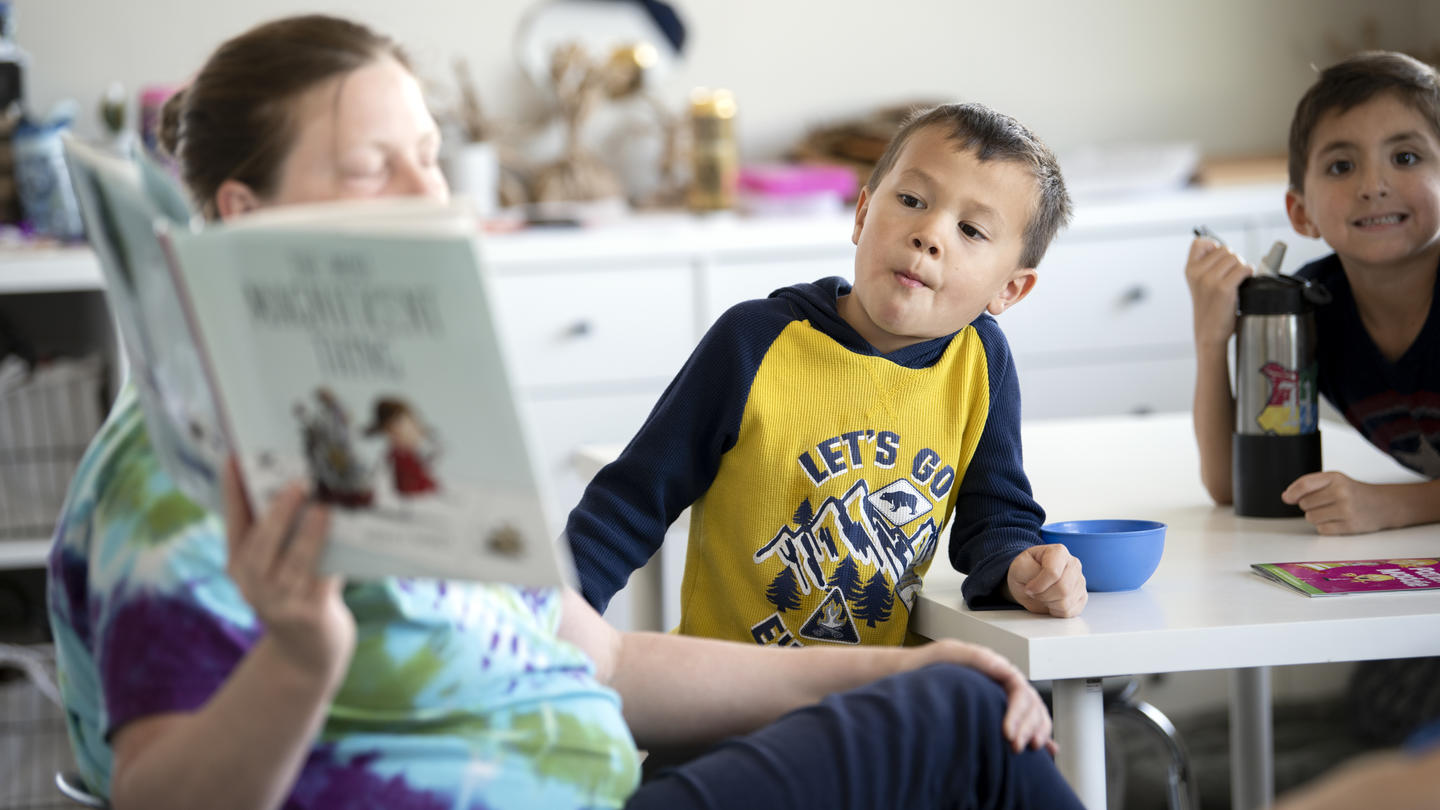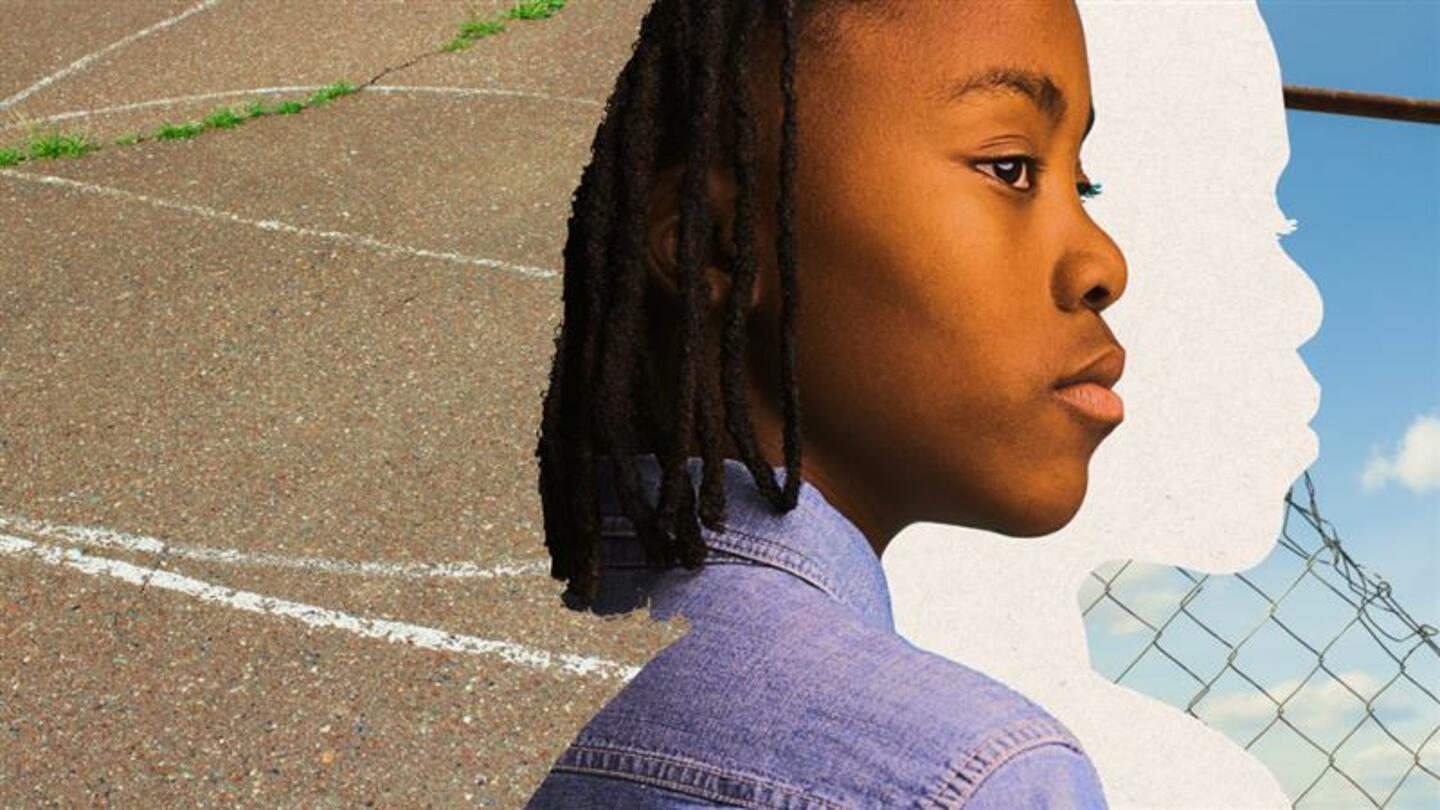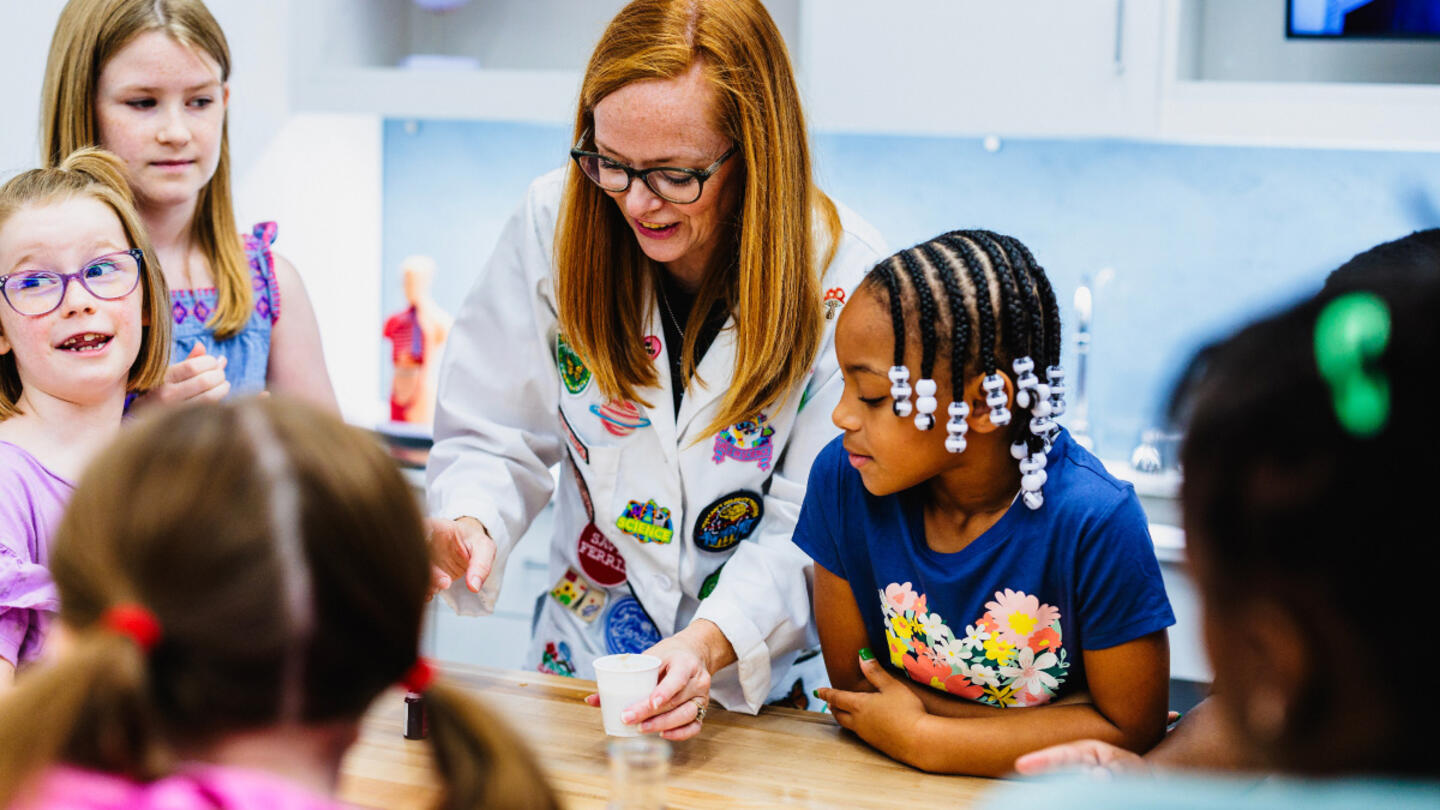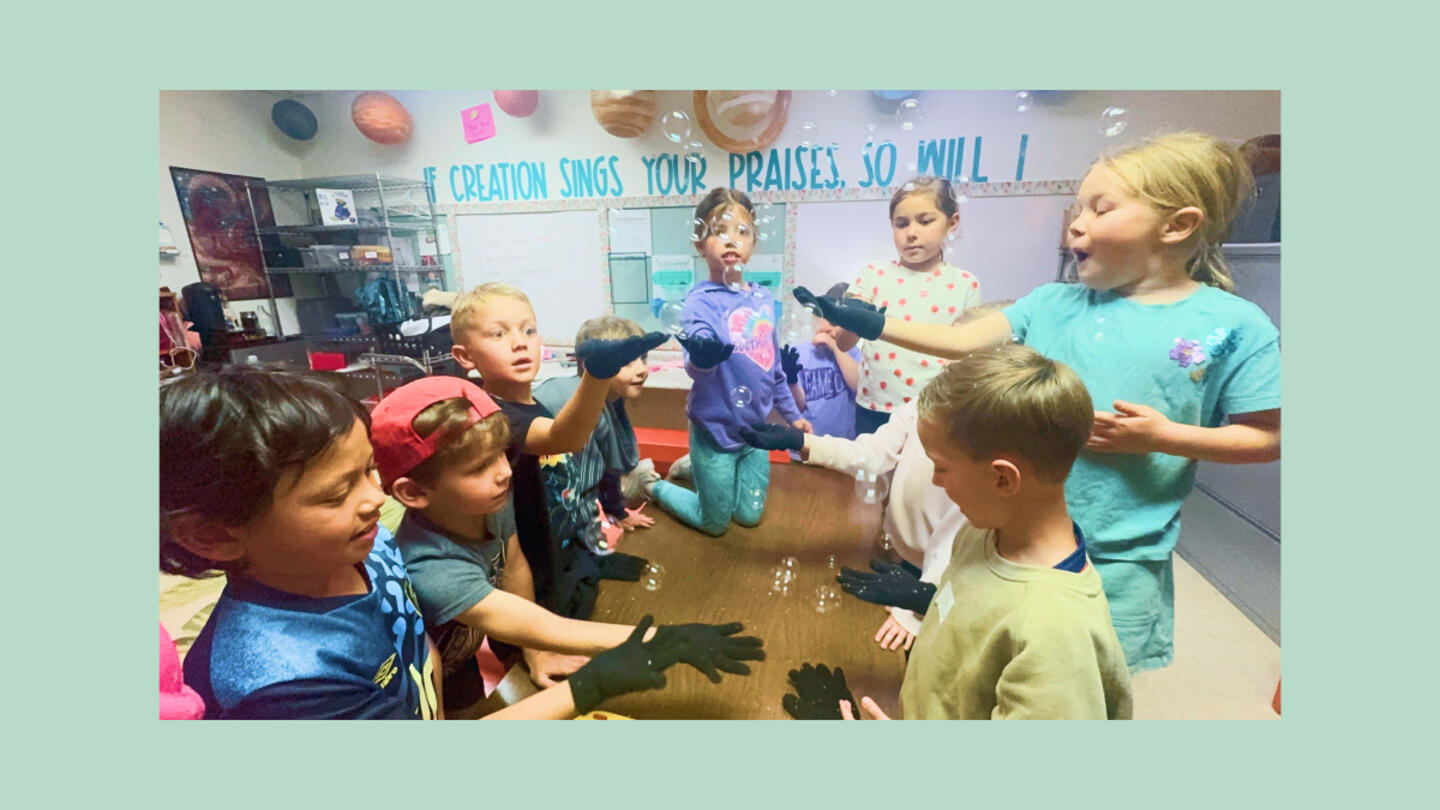When James Lomax met with his daughter Addison's preschool teacher, he was taken aback by a definition of "progress" that, to him, felt silly: She could only count to 100 (not 150), and her conversational Spanish was lacking.
"I basically told her I don't care about any of that stuff," Lomax says. "Tell me what's happening on the playground, is she learning how to make friends? How to resolve conflicts? They'd just give me a blank stare and say, 'Well, that's not our job. Our job is to make sure she's ready for kindergarten academically.' And none of that sat right with me."
At the same time, James was taking online courses to relearn calculus for his job and happened to stumble upon Acton Academy. He discovered that model could provide the educational environment he wanted for Addison: one in which a student's sense of self and real-world skills were developed alongside their academic knowledge. He also discovered that anyone who wanted to provide that environment for their kids could apply to start their own affiliate of Acton Academy in their own community.
"It was everything I was looking for," Lomax says. "And I was like, 'All right, that wasn't the plan but I guess I'm opening a school!"
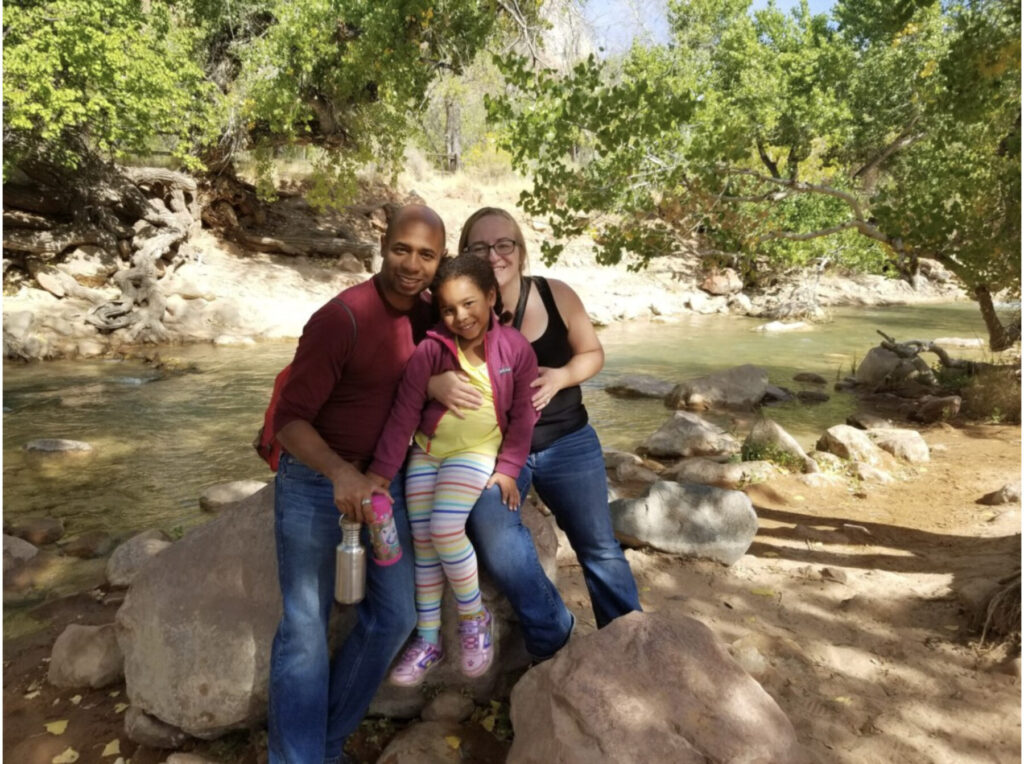
In 2022, Lomax launched the Life Skills Academy in his hometown of Henderson, Nevada. In just twelve months, the school has given students an entirely new educational experience, in which their emotional literacy is measured alongside their academic literacy. In the process, they are empowered to visualize and pursue the life they want for themselves, on their own terms.
Life skills for youth are just as important as academic curriculum
The crux of Life Skills Academy lies in its focus on developing the whole person. Students are guided to develop emotional literacy, problem solving, and conflict resolution as well as their academic subjects. Self-reflection, talent exploration, skill discovery, and aspiration are all encouraged.
The curriculum is built for each child, rather than a one-size-fits-all system. Students undertake apprenticeships of their choice, based on their unique interests and strengths. That could range from working in a veterinarian's office to a capitol building. What ultimately matters is that they develop "the ability to know how to think."
"If I go to a traditional school, I know how to take tests," Lomax says. "[But] nobody takes tests in the real world." Instead, through pragmatic, real-life educational experiences, students "can actually rise to occasion and think through it, problem solve…[They have] the ability to communicate with adults, they know how to problem solve, they have practical life skills."
In particular, conflict resolution and problem solving are critical skills that help younger students build up their self-confidence and independence. Lomax has watched this firsthand through observing Addison's experience at Life Skills Academy.
"It's really hard sometimes to watch your children as they struggle through some of the lessons and work out conflicts among themselves," Lomax says. "They're working through stuff that we're going to let them work through, and we're not solving problems for them."
Through individualized, student-directed learning that nurtures and promotes real life skills and emotional literacy, Life Skills Academy hopes to guide students towards success in their life and relationships, not just in school. Consequently, "success" for a student is not measured through academic means.
Instead, success at Life Skills Academy is achieved if "the day they walk into the real world, they know exactly what their current mission is, their calling in life, and they know exactly how to go get it," Lomax describes. "If they feel like they know what their path is and they're on the way to getting there, that's success for us. And with that comes [rising] confidence too."
Life Skills Academy empowers parents and students alike
Life Skills Academy is empowered by the community. Parents automatically join a support system of educators and other parents, one that keeps personal and relational growth moving long after school has closed for the day.
"They feel that they are joining a community rather than just a school," Lomax says. "It's so key that the parents have a strong network of support."
It is particularly important for parents to have peers that can understand and help them through some of the growing pains innate to adapting to an educational model as unique as Life Skills Academy.
The stronger the community within Life Skills Academy, the more the outside community (and the world they enter) will benefit as well. Students are encouraged to not just study within the classroom, but to look out at their community, identify problems, and brainstorm solutions, including through volunteering and apprenticeships.
"Children at a pretty young age are able to know what the problems are in their own community and be able to solve those problems," Lomax says. "The only way you can really solve problems locally is to be out in the community and be members of that community…We wanted to be much more than a school and then it translates up."
Towns and communities that are open to expanding their understanding of education and welcome schools like Life Skills Academy stand to benefit. Life skills and emotional literacy-focused institutions strengthen the communities they live in by helping young people self-actualize and empower themselves.
"Now that our community is a Life Skills Academy community, then together we can reach out to serve the broader community," Lomax says.
Life skills courses for youth last far beyond their graduation
It's safe to say that Life Skills Academy's first year in operation was a success. They had 13 students enroll this past school year, and expect to nearly triple that number by August to meet rising demand from more families.
They currently serve students aged 5 to 11, and plan to expand up to age 14 next year and 18 within the next few years. The ultimate goal is to eventually have 150 students enrolled by 2028.
In starting Life Skills Academy, Lomax joins a growing movement of parents and educators who are starting their own microschools to offer individualized, student-driven, holistic education. Other models like Bloom Academy in Las Vegas and One Stone in Idaho also provide the opportunity for students to access hands-on, project-based learning that focuses on their personal and emotional growth just as much as their academics.
In total, it's estimated that up to 2.2 million students were enrolled in microschools at the start of the 2022-23 school year, with demand from parents and educators expected to continue growing across the country.
James Lomax is able to see the rewards of individualized education right at home. Addison spent this past year enrolled in the second grade at Life Skills Academy, and her growth is already visible. She is more confident, independent, and empowered to vocalize her feelings and advocate for herself.
"I've been blown away with her progress, to see her coming out of her shell," Lomax says. "[Previously] she would just start crying. And now she will say, 'You know, this is what I'm feeling. This is what I want. This is my thought on this. Here's a solution to the problem. From my opinion. '"
Learn more about Stand Together's K-12 education efforts.
